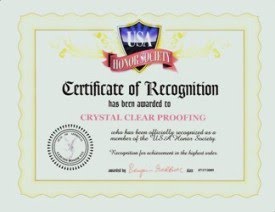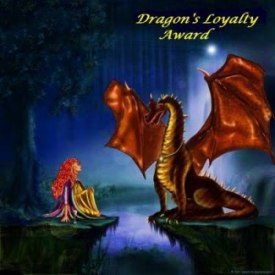
Colons in Sentences
Colons can be used in a variety of situations, such as in titles, ratios, and writing out the time. But when you are using colons in sentences, the most important thing to remember is that colons are only used after statements that are complete sentences. Never use a colon after a sentence fragment. For example, it's correct to say that Susan has two favorite colors: orange and blue. That's correct because Susan has two favorite colors is a complete sentence by itself.
Notice how the items after the colon expand on or clarify what came before the colon. I referred to Susan's favorite colors before the colon and then specifically named them after the colon. A tip for deciding whether a colon is acceptable is to test whether you can replace it with the word namely. For example, you could say Susan has two favorite colors, namely, orange and blue. Most of the time, if you can replace the colon with namely, then the colon is the right choice. Nevertheless, there are also instances where you can use a colon and namely doesn't work. For example, The play was wildly popular: they sold out the theater.
Going back to the complete sentence point, it would be wrong to say Susan's favorite colors are: orange and blue because Susan's favorite colors are is not a complete sentence by itself. You can often fix that problem by adding the words the following after your sentence fragment. For example, it would be fine to say Susan's favorite colors are the following: orange and blue because you've made what comes before the colon a complete sentence by adding the words the following.
Colons in Lists
Some people get confused about how to use colons when they are introducing lists, but the good news is that the rules are the same whether you are writing lists or sentences: you use a colon when you could use the word namely and after something that could be a complete sentence on its own.
Susan has two favorite colors:
• Orange
• Blue
Colons and Capitalization
Capitalization is optional when using single words or phrases in bulleted form. If each bullet or numbered point is a complete sentence, capitalize the first word and end each sentence with proper ending punctuation. The rule of thumb is to be consistent.
If only one sentence follows the colon, do not capitalize the first word of the new sentence. If two or more sentences follow the colon, capitalize the first word of each sentence following.
Garlic is used in Italian cooking: It greatly enhances the flavor of pasta dishes. It also enhances the flavor of sauces.
Colons and Salutations
Colons are used to follow the salutation of a business letter even when addressing someone by his/her first name. A comma is used after the salutation for personal correspondence.
Colon Choices
Since there are times when both a colon or a semicolon could be used, the difference between them, and which to use, can be confusing. Here's a little summary you may find helpful.
The purpose of a colon is to introduce or define something, and the purpose of a semicolon is to show that two clauses are related. A semicolon is used when you are joining things. When you're joining a main clause with a lone noun, you use a colon. Use a colon instead of a semicolon between two strong clauses when the second clause explains or illustrates the first clause and no coordinating conjunction is being used to connect the clauses. Here's an example of a sentence that needs a colon.
Susan was fixated on something: chocolate.
Here's a clear example of a sentence that needs a semicolon.
Susan was fixated; she couldn't get her mind off chocolate.
The first sentence needs a colon because the second part (chocolate) is the definition of the first part (what Susan is fixated on), and chocolate is a lone noun. The second sentence needs a semicolon because the two parts are strongly related to each other. The second clause gives more of a description of what is going on in the first clause.

Sources: AP Stylebook, Grammar Girl, Blue Book of Grammar

































































As always, awesome advice and clarification for when to use a colon vs a semi-colon.
ReplyDeleteGreat advice, Crystal! I'm tweeting.
ReplyDeleteElizabeth
Mystery Writing is Murder
Mystery Lovers’ Kitchen
From what I've read, colons should rarely, if ever, be used in commercial fiction. One less thing to worry about!
ReplyDeleteGood to know! And I don't think I've ever used a colon... at least not in my book, that is.
ReplyDeleteCC, Karen, Elizabeth, Alex: Thank you!
ReplyDeleteTerry: Not true at all. I've read and edited several books where a colon is the only option in certain circumstances. They are grammar rules; there isn't a separate set for whether or not something is "commercially fiction."
If I had seen this topic last Thursday after my traumatic sigmoidoscopy ordeal, I would have avoided it. But today the colon title caught my eye. I have been finding myself using colons more often recently and have been wondering about the correctness of my usage. I sometimes get confused between the proper times to use a colon and a dash and parentheses. I'm going to start paying a little closer attention to colon usage in the future.
ReplyDeleteLee
http://tossingitout.blogspot.com/
Great and informative post. It's so nice and succinct grammar seems soooo much easier now. With any luck I'll stop making so many gaffes in my ms!
ReplyDeleteGood techie Tuesday article. Too many times authors goof this up and give their ms's colon cancer, hmm? lol
ReplyDeleteMarvin D Wilson
Some excellent advice and as usual, very clearly explained. Thanks for the help.
ReplyDeleteAs a sub-editor, I've noticed some writers use a dash instead of a colon in some instances. For example, The play was wildly popular - they sold out the theatre. What's your take on dashes? Geography may play a role, maybe. As it does with spelling. For example, I'm Aussie and we spell theatre like the Brits.
ReplyDeletelustforlanguage: The difference is subtle. Basically a dash is stronger and more informal than a colon. Please stop by next week for a Tuesday Tutorial post on dashes! :)
ReplyDeleteI am so delighted to have found you thanks to your visit to my guest blog article. I look forward to following your blogs - I have just visited and enjoyed all of them! Please don't be too thrown by my misuse of colons (I am sure your eagle eye will detect a few!). I will be faithfully checking in with you for lessons on Tuesdays.
ReplyDeleteOops. Just noticed a weird thing going on with an exclamation mark, brackets and a full stop.
ReplyDeleteHelpful as always. Thanks.
ReplyDelete